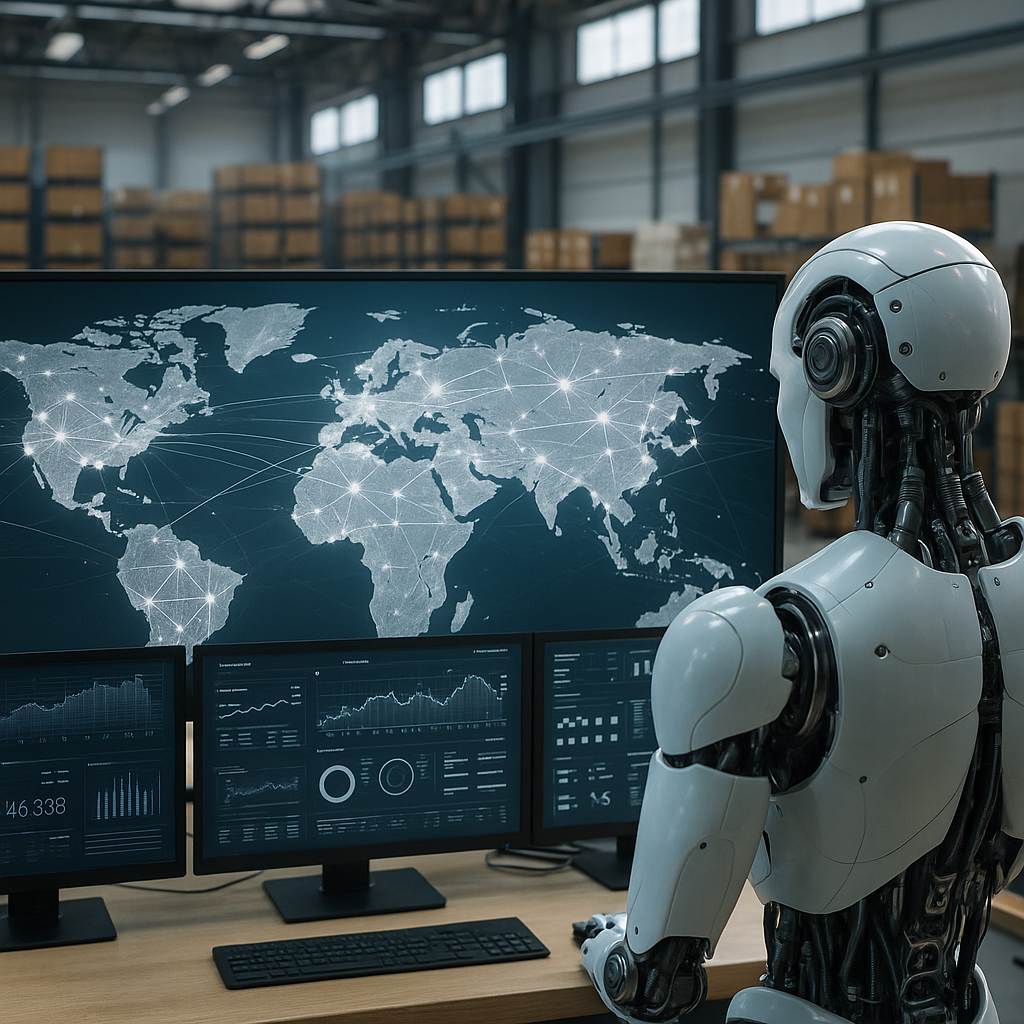Manufacturers turn to AI to combat global supply chain disruptions
The study found that companies using AI experience significantly stronger supply chain resilience (SCR). Using survey data from 231 senior executives in Chinese manufacturing firms, the authors demonstrate that AI enhances an organization’s ability to respond to sudden market shifts, manage risks, and recover from disruptions more effectively.

- Country:
- China
Artificial intelligence is rapidly reshaping global supply chains, offering businesses new tools to anticipate disruptions, improve operations, and strengthen collaboration. In a new study published in Systems, researchers analyze how companies can leverage AI to build more agile and resilient supply chains.
The study, titled “Artificial Intelligence Usage and Supply Chain Resilience: An Organizational Information Processing Theory Perspective,” provides robust evidence that AI adoption is not just a technological upgrade but a strategic necessity for thriving in increasingly volatile global markets.
AI usage directly boosts supply chain resilience
The study found that companies using AI experience significantly stronger supply chain resilience (SCR). Using survey data from 231 senior executives in Chinese manufacturing firms, the authors demonstrate that AI enhances an organization’s ability to respond to sudden market shifts, manage risks, and recover from disruptions more effectively.
The research builds on the Organizational Information Processing Theory (OIPT) framework, which suggests that resilience stems from an organization’s ability to process information efficiently and make faster, data-driven decisions. AI supports these capabilities by enabling predictive analytics, real-time monitoring, and dynamic risk assessment, helping firms anticipate problems before they escalate.
Empirical testing revealed that AI usage alone significantly improves resilience performance metrics, reinforcing the role of AI as a foundational pillar in modern supply chain strategies. The authors argue that this direct impact is a critical competitive differentiator, particularly for firms operating in fast-changing industries or facing frequent supply chain shocks.
Collaboration, efficiency, and digital capability as key drivers
Beyond its direct benefits, the study highlights the indirect pathways through which AI strengthens supply chains. Two critical mediators emerged from the analysis: supply chain collaboration (SCC) and supply chain efficiency (SCE).
Collaboration: AI enhances information-sharing and coordination between suppliers, partners, and distributors. By creating real-time visibility across the supply network, firms can synchronize operations, share demand forecasts, and align inventory strategies, reducing the risk of misalignments or delays. This collaborative advantage ensures that disruptions are addressed collectively and swiftly.
Efficiency: AI-driven optimization tools streamline inventory management, logistics planning, and production scheduling. Firms can predict demand fluctuations with higher accuracy, optimize resource allocation, and minimize waste. This increased efficiency not only reduces operational costs but also creates the flexibility needed to adapt to unexpected changes without compromising service levels.
The research also identifies digital information technology capability (DITC) as a crucial moderator in the AI-resilience relationship. Organizations with robust digital infrastructure, integrated data systems, and strong IT governance extract greater value from their AI investments. Conversely, companies with underdeveloped digital capabilities risk underutilizing AI, limiting its potential to transform supply chain performance.
Strategic insights for global supply chains
The study delivers actionable insights for manufacturers and supply chain leaders navigating an era of disruption, from geopolitical tensions and economic volatility to climate risks and global health crises.
- Treat AI as a strategic enabler, not just a tool. AI should be embedded into the organization’s decision-making processes rather than treated as a standalone solution. Firms that integrate AI into their core operational strategies are better positioned to sense risks, analyze scenarios, and execute rapid, informed responses to disruptions.
- Invest in collaboration and trust across the value chain. AI solutions perform best when there is a steady flow of reliable data across the supply network. This requires building trust with partners, fostering transparent data-sharing practices, and investing in platforms that facilitate seamless information exchange.
- Prioritize efficiency for faster wins. By targeting areas like inventory control, transportation planning, and production workflows, firms can achieve immediate improvements in performance while laying the foundation for more advanced AI applications.
- Build digital readiness. The findings make it clear that digital capability is a critical success factor. Companies should assess their current IT infrastructure, enhance data governance, and develop the digital skills of their workforce to fully capitalize on AI investments.
While the study provides strong evidence from the Chinese manufacturing sector, the authors caution that broader investigations across different industries and geographic contexts are needed to validate and generalize the results. Future research should also explore how emerging technologies like generative AI, blockchain, and IoT integrate with AI to create even more adaptive and intelligent supply chains.
- FIRST PUBLISHED IN:
- Devdiscourse










